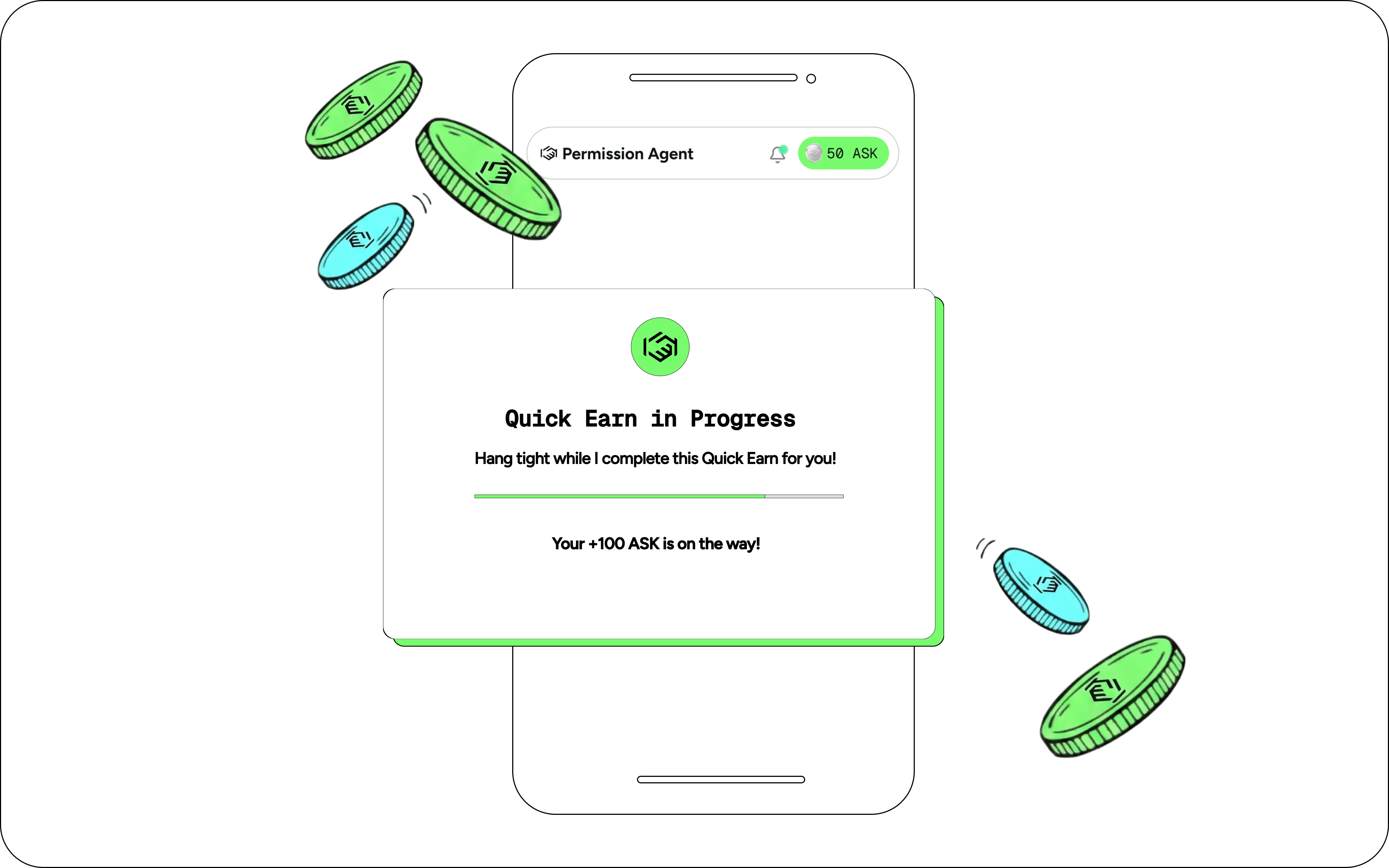Get the latest insights, product updates, and news from Permission — shaping the future of user-owned data and AI innovation.
Roblox isn’t just a game — it’s a digital playground with tens of millions of daily users, most of them children between 9 and 15 years old.
For many, it’s the first place they build, chat, and explore online. But as with every major platform serving young audiences, keeping that experience safe is a monumental challenge.
Recent lawsuits and law-enforcement reports highlight how complex that challenge has become. Roblox reported more than 13,000 cases of sextortion and child exploitation in 2023 alone — a staggering figure that reflects not negligence, but the sheer scale of what all digital ecosystems now face.
The Industry’s Safety Challenge
Most parents assume Roblox and similar platforms are constantly monitored. In reality, the scale is overwhelming: millions of messages, interactions, and virtual spaces every hour. Even the most advanced AI moderation systems can miss the subtleties of manipulation and coded communication that predators use.
Roblox has publicly committed to safety and continues to invest heavily in AI moderation and human review — efforts that deserve recognition. Yet as independent researcher Ben Simon (“Ruben Sim”) and others have noted, moderation at this scale is an arms race that demands new tools and deeper collaboration across the industry.
By comparison, TikTok employs more than 40,000 human moderators — over ten times Roblox’s reported staff — despite having roughly three times the daily active users. The contrast underscores a reality no platform escapes: AI moderation is essential, but insufficient on its own.
When Games Become Gateways
Children as young as six have encountered inappropriate content, virtual strip clubs, or predatory advances within user-generated spaces. What often begins as a friendly in-game chat can shift into private messages, promises of Robux (Roblox’s digital currency), or requests for photos and money.
And exploitation isn’t always sexual. Many predators use financial manipulation, convincing kids to share account credentials or make in-game purchases on their behalf.
For parents, Roblox’s family-friendly design can create a false sense of security. The lesson is not that Roblox is unsafe, but that no single moderation system can substitute for parental awareness and dialogue.
Even when interactions seem harmless, kids can give away more than they realize.
A name, a birthday, or a photo might seem trivial, but in the wrong hands it can open the door to identity theft.
The Hidden Threat: Child Identity Theft
Indeed, a lesser-known but equally serious risk is identity theft.
When children overshare personal details — their full name, birthdate, school, address, or even family information — online or with strangers, that data can be used to impersonate them.
Because minors rarely have active financial records, child identity theft often goes undetected for years, sometimes until they apply for a driver’s license, a student loan, or their first job. By then, the damage can be profound: financial loss, credit score damage, and emotional stress. Restoring a stolen identity can require years of effort, documentation, and legal action.
The best defense is prevention.
Teach children early why their personal information should never be shared publicly or in private chats — and remind them that real friends never need to know everything about you to play together online.
AI Moderation Needs Human Partnership
AI moderation remains reactive.
Algorithms flag suspicious language, but they can’t interpret tone, hesitation, or the subtle erosion of boundaries that signals grooming.
Predators evolve faster than filters, which means the answer isn’t more AI for the platform, but smarter AI for the family.
The Limits of Centralized AI
The truth is, today’s moderation AI isn’t really designed to protect people; it’s designed to protect platforms. Its job is to reduce liability, flag content, and preserve brand safety at scale. But in doing so, it often treats users as data points, not individuals.
This is the paradox of centralized AI safety: the bigger it gets, the less it understands.
It can process millions of messages a second, but not the intent behind them. It can delete an account in a millisecond, but can’t tell whether it’s protecting a child or punishing a joke.
That’s why the future of safety can’t live inside one corporate algorithm. It has to live with the individual — in personal AI agents that see context, respect consent, and act in the user’s best interest. Instead of a single moderation brain governing millions, every family deserves an AI partner that watches with understanding, not suspicion.
A system that exists to protect them, not the platform.
The Future of Child Safety: Collaboration, Not Competition
The Roblox story underscores an industry-wide truth: safety can’t be one-size-fits-all.
Every child’s online experience is different and protecting it requires both platform vigilance and parent empowerment.
At Permission, we believe the next generation of online safety will come from collaboration, not competition. Instead of replacing platform systems, our personal AI agents complement them — giving parents visibility and peace of mind while supporting the broader ecosystem of trust that companies like Roblox are working to build.
From one-size-fits-all moderation to one-AI-per-family insight — in harmony with the platforms kids already love.
Each family’s AI guardian can learn their child’s unique patterns, highlight potential risks across apps, and summarize activity in clear reports that parents control. That’s what we mean by ethical visibility — insight without invasion.
You can explore this philosophy further in our upcoming piece:
➡️ Monitoring Without Spying: How to Build Digital Trust With Your Child (link coming soon)
What Parents Can Do Now
Until personalized AI guardians are widespread, families can take practical steps today:
- Talk early and often. Make online safety part of everyday conversation.
- Ask, don’t accuse. Curiosity builds trust; interrogation breeds secrecy.
- Play together. Experience games and chat environments firsthand.
- Set boundaries collaboratively. Agree on rules, timing, and social norms.
- Teach red flags. Encourage your child to tell you when something feels wrong — without fear of punishment.
A Shared Responsibility
The recent Roblox lawsuits remind all of us just how complicated parenting in the digital world can feel. It’s not just about rules or apps: it’s about guiding your kids through a space that changes faster than any of us could have imagined!
And the truth is, everyone involved wants the same thing: a digital world where kids can explore safely, confidently, and with the freedom to just be kids.
At Permission, we’re committed to building an AI that understands what matters, respects your family’s values and boundaries, and puts consent at the center of every interaction.
Explore the Permission Platform
Unlock the value of your online experience.


%20(1).png)



